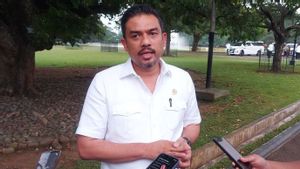JAKARTA – Ideology is etymologically derived from the Greek, ide which means 'idea or ideas' and logos which means 'study of' and 'science of'. In the KBBI, ideology means a collection of systematic concepts that are used as the basis of opinions (events) that provide direction and purpose for survival. There is a system of ideological concepts adopted by the state, one of which is communist ideology.
Communism is an ideology held by a social structure in which everything is managed together. Quoted from Lorens Bagus's Dictionary of Philosophy, communism comes from the Latin communis which means 'general, equal, public, universal'. Communist ideology can be understood as a political and economic system that seeks to create a classless society in which the main means of production, such as mines and factories, are owned and controlled by the public.
Reported by Britannica, the communist ideology does not recognize ownership by either the government or the private sector of currency. The entire wealth is divided equally for each citizen or according to individual needs. This ideology, communism, is closely related to the teachings of communism from a revolutionary figure, namely Karl Marx and Fredrich Engels in their work The Communist Manifesto (1848).

As a constitutional concept, in 1917, the Bolsheviks seized power through the October Revolution. This is the first time the principles of communist ideology have won power. They changed their name to the Communist Party and echoed their ideals to all European socialist parties.
Public property was nationalized and put factories and railroads under government control. Stalin then led and expanded the growth of the Soviet Union and was followed by other communist ideological countries, including China.
In principle, communist ideology has 5 characteristics. First, as explained above, private ownership of the means of production is abolished. That is, an individual cannot own anything except the necessities of life and cannot run a personal business.
Second, all means of production, such as factories, livestock, land, trade, construction, mining, and means of transportation and communication are under the ownership and control of the state. Third, the utilization of national resources in the form of production and distribution of goods is carefully planned. Utilization considers the balance between supply and demand and is centrally planned.
Fourth, the income gap is eliminated so that it is fair. Even with the distribution of wealth will be divided equally. Fifth, state implementers who adhere to communist ideology are responsible for providing jobs and compensation according to the capabilities of each individual.
Citing the World Population Review, countries with communist ideology include China, Cuba, Laos, North Korea, and Vietnam.
The English, Chinese, Japanese, Arabic, and French versions are automatically generated by the AI. So there may still be inaccuracies in translating, please always see Indonesian as our main language. (system supported by DigitalSiber.id)













